Classic Home Mortgage Providing Trustworthy Mortgage Guidance for Over 30 Years
Buying a home is one of the most significant investments that you will ever make. Like most good things, finding the perfect home comes with a lot of work. From your initial search online to your home tour and finally closing, there are many difficult decisions to make along the way. The bottom line is that the entire home buying process can be very stressful, especially when it comes to finding the right mortgage broker and loan for your new home. Since market conditions and mortgage programs change frequently, you have a lot riding on your broker's ability to provide quick and accurate financial advice. Whether you're a first-time homebuyer or own several residential properties, you need a mortgage broker in Charleston, SC, who can educate you on mortgage rates and provide trustworthy guidance to help you make an informed decision.
My name is Dan Crance - Charleston's most trusted mortgage loan officer with more than 30 years in the mortgage industry. I bring unparalleled insight and decades of experience into your home loan process. If you're looking for a new home loan, are interested in refinancing your current mortgage, or need information regarding FHA, VA, or other types of loans, Dan Crance is Your Mortgage Man.
Unlike some mortgage loan officers in Charleston, my primary goal is to help you make the right mortgage choice for you and your family. Mortgage lenders have a horrible reputation for turning over clients quickly to expedite cash flow and make the most money possible. While some mortgage brokers come off as pushy and impatient, I encourage my clients to take as much time as they need to ask questions and review their mortgage agreements. I'm here to help answer those questions and provide you with easy-to-understand advice so that you can rest easy knowing you made the right choice. I could say that I strive to provide service that exceeds your expectations, but I'd rather show you. In the end, I want you to leave feeling confident in the loan you've selected, as well as in your choice of broker.
Service Areas
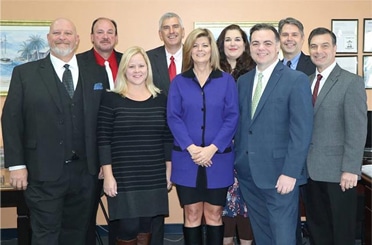
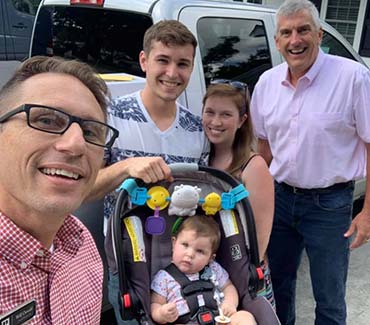

Why Choose Dan Crance As Your Mortgage Lender in Charleston, SC?
Clients choose my mortgage company because I truly care about helping them navigate the often-confusing landscape of the mortgage process. I am fiercely dedicated to my clients and make every effort to provide them with trustworthy advice and an open line of communication.
In my business, I work for two different customers. On one hand, I have the buyer: the person entrusting me with the responsibility of guiding them through one of the most important decisions ever. Serving homebuyers is not a task that I take lightly. I work with them daily to help them through the process and provide timely updates and news on their mortgage status. On the other hand, I have the realtor: the person who works with my client to find their dream home. Since their commission is in my hands, working with realtors is also a very important task. I update these agents on the status of their customers weekly. Only when I take care of both parties can I say my job as a mortgage loan officer is complete.
As a mortgage broker with more than 30 years of experience, I pledge to give you the highest level of customer service while providing you with the most competitive loan products available. That way, you can buy the home of your dreams without second-guessing your decision.
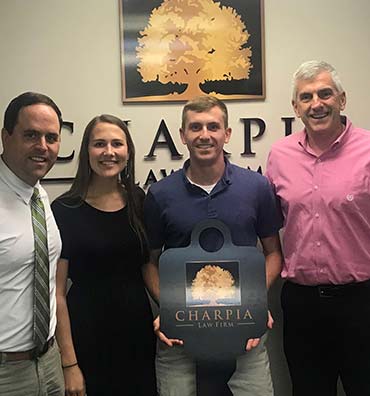
Home Financing in Charleston, SC
At Classic Home Mortgage, our team works diligently to close on time without stress or hassle. Whether you're a seasoned homeowner or are buying your new home in Charleston, we understand how much stress is involved. Our goal is to help take that stress off of your plate by walking you through every step of the home loan process. Because every one of our clients is different, we examine each loan with fresh eyes and a personalized approach, to find you the options and programs you need.
With over 30 years as a mortgage professional in Charleston, Dan Crance will help you choose the home loan, interest rate, term options, and payment plans that fit your unique situation.
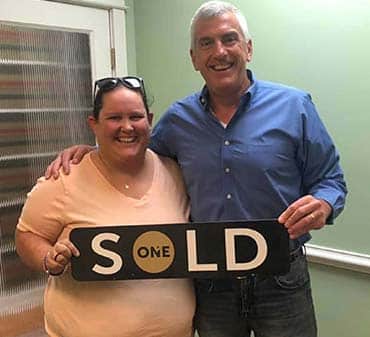
When you work with Classic Home Mortgage, you can always count on our team to:
- Put your needs first.
- Work efficiently and quickly. Many of our home loans close in 30 days or less.
- Offer you a variety of home loans to choose from, and help you make an informed decision.
- Provide you with competitive rates that make sense for your budget and lifestyle.
While no two loan terms are the same, a few of the most common loan types include:
30-Year Loan - This loan is often considered the most secure option to choose. With a 30-year loan, you can lock in a low payment amount and rest easy knowing your rate won't change.
FHA Loan - If you're not able to make a large down payment, an FHA loan could be the right choice for you. With an FHA loan, many of our clients have successfully purchased a home with less than 4% down.
VA Loan - This loan is reserved for military veterans and active-duty men and women. Those who qualify may be able to purchase a home with no down payment and no Private Mortgage Insurance (PMI).
Choosing a home loan is an important step in the home buying process. At Classic Home Mortgage, we are here to make choosing a loan as easy as possible, so you can focus on the joys of being a homeowner. Contact our team of experts today and ask how you can get pre-qualified for your home loan in Charleston, SC.
Refinancing in
Charleston, SC
Because home mortgage rates in the U.S. have been so low over the last year, many current homeowners are opting to refinance their home loans. Simply put, refinancing is replacing your existing mortgage with a different mortgage under new terms. Homeowners who refinance their homes enjoy lower interest rates, lower monthly payments, and even turn their home's equity into cash. If you're interested in refinancing your home, it all begins with a call to your mortgage broker in Charleston, SC - Dan Crance.
Here are just a few reasons why more homeowners in the U.S. are taking advantage of lower rates and refinancing their homes:
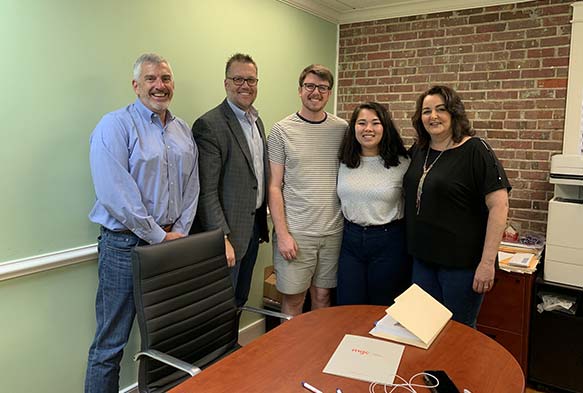

Shorter Term Loan
Refinancing from a 30-year to a 15-year mortgage might seem counterproductive on the surface because your monthly payment usually goes up. However, interest rates on 15-year mortgages are lower. And when you shave off years of your previous mortgage, you will pay less interest over time. These savings can be very beneficial if you are not taking the mortgage interest deduction on your tax returns.

Do Away with FHA
FHA loans are notorious for paying premiums for the life of the loan. Mortgage insurance premiums for FHA loans can cost borrowers as much as $1,050 a year for every $100k borrowed. The only way to get rid of mortgage insurance premiums is to refinance to a new loan that the Federal Housing Authority does not back.

Switch to Fixed Rate or Adjustable-Rate Home Loan
Sometimes, borrowers with adjustable-rate mortgages refinance so they can switch to a fixed rate, which lets them lock in an interest rate. Doing so is beneficial for some homeowners who like to know exactly how much their monthly payment is each month. Conversely, some homeowners with fixed rates prefer to refinance to an adjustable-rate mortgage. Homeowners often go this route if they plan on selling in a few years and don't mind risking a higher rate if their plans fall through.

Common Questions About Home Loans
Finding the right loan can be a difficult proposition, even if you have been through the process before. This is especially true since mortgage rates and market conditions change frequently. If you're like most of my clients, you probably have questions about interest rates, refinancing options, and a litany of other topics. To help alleviate some of your stress, here are just a few common questions with answers so that you can better educate yourself as we work our way to securing your loan.


Trust Dan Crance
Your Mortgage Lender in Charleston, SC
Whether you're selling, buying, refinancing, or building the home of your dreams, you have a lot riding on your home loan specialist. When you need a mortgage broker who works tirelessly for you, answers your questions, provides guidance, and does so with a genuine smile, Dan Crance is your mortgage man. Contact Dan today at 843-478-5612 to get pre-approved and discover why Charleston loves Classic Home Mortgage.
After hours by appointment only. CONTACT DANLatest News in Charleston, SC
Art Charleston is 5-day festival that starts April 24
City Paper Staffhttps://charlestoncitypaper.com/2024/04/14/art-charleston-is-5-day-festival-that-starts-april-24/
Art Charleston, a five-day festival by The Gibbes Museum of Art, will return April 24 in downtown Charleston.The festival, founded in 2022, celebrates Charleston’s thriving arts community and raises funds for the museum. In this year’s lineup there are artist lectures, p...
Art Charleston, a five-day festival by The Gibbes Museum of Art, will return April 24 in downtown Charleston.
The festival, founded in 2022, celebrates Charleston’s thriving arts community and raises funds for the museum. In this year’s lineup there are artist lectures, panel discussions, gallery walks and professional workshops — that’s in addition to the museum’s longtime annual spring traditions like the Art of Design luncheon and the fabulous Street Party.
“We look forward to welcoming guests to this year’s festival, which celebrates the transformative power of art within our community,” said Angela Mack, president and CEO of the Gibbes Museum of Art in a press release. “Art, as a universal language, enriches our lives, fosters compassion and encourages connection with the world around us.”
On display now through the end of the month is Rory McEwen: A New Perspective on Nature, a retrospective look at the career of the renowned Scottish artist, Rory McEwen (1932 –1982). The exhibition reveals McEwen’s lifelong inquiry into light and color through his remarkable painted renderings of plants.
During Art Charleston, attendees also are invited to take a ‘closer look’ at the exhibition with a variety of experts, such as Jennifer Brown. She will lead attendees through a presentation on Harvard Museum’s Blaschka Glass Flower Collection on April 25.
The following day, explore the McEwen exhibit from a musician’s point of view with Lydia Chernicoff, the artistic director of New Muse Concerts. Or, check out the Closer Look: Bees and Blooms on April 28, in which local beekeeper and apiary expert, Tom Knaust, will lead a conversational tour of the exhibit.
Another cool part of the festival is the premiere of a community art project called A Tree of Every Color. It is conceptualized and designed by North Carolina-based artist Tuxedo Kat in collaboration with the Charleston Parks Conservancy. As part of the dedication of this new permanent sculpture on the West Ashley Bikeway, A Tree of Every Color will include over 200 three-dimensional hanging flowers constructed by kids and families in the Lowcountry.
There’s also a documentary screening on April 27 with a rare interview by documentarian Paul Tschinkel, who led a pioneering career as one of the first to ever broadcast live interviews with contemporary artists on television. Following the screening, the museum hosts a discussion about how the advent of new media, from television to Instagram, have changed our expectations of artists.
Also April 27, you can join author Emily Evans Eerdmans with Patricia Altschul of Southern Charm (who penned the forward in Eerdmans’ book) for a discussion and book-signing of Mario Buatta: The Anatomy of a Decorator.
There’s also events that merge the visual and culinary arts. An example: a freshly foraged dinner event with chef and food historian Kevin Mitchell. And don’t miss the April 25 Street Party which transforms Meeting Street into a foodie’s delight featuring top chefs, an open bar and live music.
To conclude the week’s celebrations, the museum will host an Artisan Fair from 1 to 5 p.m. on April 28. With about 40 skilled makers of various disciplines, there will be many unique finds for guests to shop. This event will be free. Artisans receive 100% of all purchases.
Live music fills the air at inaugural County Music Festival in North Charleston
Sophia Radebaughhttps://www.counton2.com/news/charleston-country-music-festival-kicks-off-first-year/
NORTH CHARLESTON, S.C. (WCBD)- The inaugural Charleston Music Festival kicked off Sunday morning near the Ashley River in North Charleston.Locals and out-of-towners came out to hear live music and it was all for a gre...
NORTH CHARLESTON, S.C. (WCBD)- The inaugural Charleston Music Festival kicked off Sunday morning near the Ashley River in North Charleston.
Locals and out-of-towners came out to hear live music and it was all for a great cause.
Event organizer, Steve Carroll says after months of planning it was great to see the festival come to fruition. “Getting the right people in the right place at the right time and that’s what we kind of did today,” he said.
The festival was held at the Jenkins Youth and Family Village.
Some big-name country musicians were set to perform, like Whey Jennings and Raelyn Nelson, grandchildren of country music icons Waylon Jennings and Willie Nelson, along with local and regional acts.
Other artists who performed say they’ve been excited to play at this event for months. “I’ve played Bonaroo, I’ve played my Mamaw’s backyard and I get nervous either way,” said country music artist, Ryan Sheley.
Andrew Beam, who is also performing said, “I’m from Cashiers, North Carolina. I have a twang in my accent. The twang is a real thing and I play for real people.”
There were several local vendors set up at the festival serving food and drinks.
Organizers say a portion of proceeds from Sunday’s festival will go to local charities like The Jenkins Orphanage, Wake Up Carolina, and Islands Against Cancer.
“Two of my dear friends, they run charities in town. We grew up together and we support each other. We hope to raise awareness for them and money for them as well,” said Carroll.
“Any time we can get out here on a beautiful day, play music in front of people, do what we love to do, and it all goes to a great cause, it doesn’t get better than that,” Beam said.
The festival will end at 6 p.m. on Sunday.
'Forever chemicals' pollute the Charleston Water System. How much will it cost to fix?
Clare Fieselerhttps://www.postandcourier.com/environment/charleston-pfas-drinking-water-forever-chemicals/article_5d36e348-f75d-11ee-a559-3f47369c04db.html
BY JONAH CHESTER and CLARE FIESELERCharleston’s drinking water utility will soon be compelled to comply with America’s first drinking water standards for “forever chemicals.”Mark Cline, Charleston Water System’s chief executive officer, said the water utility will meet those new rules. But it’s not going to be cheap.“In my view, and I’ve been doing this for 40 years, this is the most expensive rule EPA has ever put in place for drinking water,” Cline said.He es...
BY JONAH CHESTER and CLARE FIESELER
Charleston’s drinking water utility will soon be compelled to comply with America’s first drinking water standards for “forever chemicals.”
Mark Cline, Charleston Water System’s chief executive officer, said the water utility will meet those new rules. But it’s not going to be cheap.
“In my view, and I’ve been doing this for 40 years, this is the most expensive rule EPA has ever put in place for drinking water,” Cline said.
He estimates that installing the treatment technology to meet the new guidelines will cost “at least” $130 million in capital costs and $10 million to $12 million in annual operating costs for the Water System.
The U.S. Environmental Protection Agency announced the long-awaited regulations April 10, estimating that complying with the rules nationwide will cost $1.5 billion annually. That’s essentially a break-even point, as the federal agency also estimates the new rules will result in savings of $1.5 billion per year from lower cancer rates, fewer heart issues and reduced birth problems.
The pollutants go under the scientific name per- and polyfluoroalkyl substances (PFAS), which pose health risks at even small levels of exposure. PFAS is a massive chemical family with thousands of member compounds, some of which can take hundreds of years to break down — hence their nickname “forever chemicals.”
Charleston Water System serves about 125,600 customers in the region. Its most recent testing for PFAS showed that the utility is already in compliance with new standards for the compound PFOA, a known human carcinogen. But levels of the compound PFOS, a possible carcinogen, were tested at 5.56 parts per trillion, which is above the new health standard of 4 ppt.
Charlestonians who want to avoid drinking elevated PFOS levels can decrease their exposure through table-top water filters.
PFAS have been linked to a laundry list of health issues. That includes, among other things, increased infertility, developmental problems, increased risk of certain cancers and hormonal issues. The EPA notes that ”research is still ongoing” and the precise health effects of PFAS can be difficult to tease out given the size of the chemical family and the multiple different routes of exposure.
WASHINGTON — For the 10th consecutive month, Earth in March set a new monthly record for global heat — with both air temperatures and the world's oceans hitting an all-time high for the month, the European Union climate agency Copernicus said.
March 2024 averaged 14.14 degrees Celsius (57.9 degrees Fahrenheit), exceeding the previous record from 2016 by a tenth of a degree, according to Copernicus data. And it was 1.68 degrees C (3 degrees F) warmer than in the late 1800s, the base used for temperatures before the burning of fossil fuels began growing rapidly.
Since last June, the globe has broken heat records each month, with marine heat waves across large areas of the globe's oceans contributing.
Scientists say the record-breaking heat during this time wasn't entirely surprising due to a strong El Nino, a climatic condition that warms the central Pacific and changes global weather patterns.
"But its combination with the non-natural marine heat waves made these records so breathtaking," said Woodwell Climate Research Center scientist Jennifer Francis.
With El Nino waning, the margins by which global average temperatures are surpassed each month should go down, Francis said.
Climate scientists attribute most of the record heat to human-caused climate change from carbon dioxide and methane emissions produced by the burning of coal, oil and natural gas.
"The trajectory will not change until concentrations of greenhouse gases in the atmosphere stop rising," Francis said, "which means we must stop burning fossil fuels, stop deforestation, and grow our food more sustainably as quickly as possible."
Until then, expect more broken records, she said.
Under the 2015 Paris Agreement, the world set a goal to keep warming at or below 1.5 degrees Celsius (2.7 degrees Fahrenheit) since pre-industrial times. Copernicus' temperature data is monthly and uses a slightly different measurement system than the Paris threshold, which is averaged over two or three decades.
Republic DMG to Open Zachary's Daiquiries on King Street
MyLo Lowcountryhttps://www.mylolowcountry.com/mount-pleasant/republic-dmg-to-open-zachary-s-daiquiries-at-460-king-street/
Republic Development & Management Group, the South Carolina-based hospitality group behind Republic Garden & Lounge, Bourbon N’ Bubbles, MESU, and Lamar’s Sporting Club, has announced plans to open Zachary’s Daiquiris – a frozen daiquiri destination. The venue is slated to open in the former home of Basil in late spring 2024.Zachary’s Daiquiris also known as Zach’s Daiqs, will be located at 460 King Street near the corner of Ann Street. Republic DMG says the venue will be "full of energ...
Republic Development & Management Group, the South Carolina-based hospitality group behind Republic Garden & Lounge, Bourbon N’ Bubbles, MESU, and Lamar’s Sporting Club, has announced plans to open Zachary’s Daiquiris – a frozen daiquiri destination. The venue is slated to open in the former home of Basil in late spring 2024.
Zachary’s Daiquiris also known as Zach’s Daiqs, will be located at 460 King Street near the corner of Ann Street. Republic DMG says the venue will be "full of energy, retro flair, and sophisticated funk." Patrons can expect to see a collection of 12 frozen cocktail offerings such as the espresso martini, paloma, froze, classic daiquiris, a variety of margaritas, as well as non-alcoholic options. Zach’s Daiqs will also offer a lite culinary menu, spearheaded by Executive Chef of Republic DMG, Michael Watson.
With over 2,500 square feet, the interior design is led by Courtney Perillo, Owner and Principal Designer of Courtney Perillo Interiors. The venue is adorned with floor-to-ceiling windows allowing natural light to fill the space. Additionally, there is an outdoor patio along Ann Street.
Zachary Elliott was born and raised in Greenville, South Carolina and is a living testament to the power of overcoming adversity. His story began at the age of nine years old, when he was diagnosed with bone cancer, a diagnosis that carried a daunting 10% chance of survival. Undeterred, Zach faced chemotherapy and the amputation of his leg, enduring years of surgeries and adapting to life with prosthetics, all with the support of medical professionals. Zach’s pursuit of life's possibilities led him to the College of Charleston, and later to Florida, where he joined forces with his father. The year 2016 brought another twist of fate as he faced the heart-wrenching loss of his father. Zach’s journey continued in 2022 as he teamed up with Lamar Bonaparte, Owner of Republic Development & Management Group, a collaboration that ignited new passions and possibilities. Through the years, the concept of Zach's Daiqs had been a cherished idea that is about to come to light.
Zachary’s Daiquiris believes in giving back to the community and a portion of proceeds will be dedicated to supporting the fight against childhood cancer.
“It's our way of turning challenges into opportunties and making a positive impact on the lives of others,” said Elliott. “Join us in savoring the sweetness of life and helping us make a difference, one sip at a time.”
Hours of operation are slated to be 12 pm to midnight, Monday through Sunday. For more information on Republic DMG, and the upcoming debut of Zachary’s Daiquiris, visit https://republic-dmg.com.
Late Home Run by Gardner-Webb Pulls Them Ahead of Charleston Southern
CSU Athleticshttps://www.live5news.com/2024/04/14/late-home-run-by-gardner-webb-pulls-them-ahead-charleston-southern/
CHARLESTON – Gardner-Webb used a three-run home run in the top of 9th to come-from-behind and defeat Charleston Southern by a final score of 6-5 on Saturday afternoon.Sam Massey started the day with a stellar performance on the mound retiring each of the Runnin’ Bulldogs first six batters, including five by strikeout. He struck out the side in the second inning. In the third inning, they were able to piece together a few extra base hits with two outs to score two runs with the third being off a passed ball.Charlesto...
CHARLESTON – Gardner-Webb used a three-run home run in the top of 9th to come-from-behind and defeat Charleston Southern by a final score of 6-5 on Saturday afternoon.
Sam Massey started the day with a stellar performance on the mound retiring each of the Runnin’ Bulldogs first six batters, including five by strikeout. He struck out the side in the second inning. In the third inning, they were able to piece together a few extra base hits with two outs to score two runs with the third being off a passed ball.
Charleston Southern cut into their deficit with a pair of runs in the bottom of the fourth to bring the score to 3-2. Lucas Pringle batted in the first run when the bases were loaded on a fielder’s choice. Evann Long then had a sacrifice fly to score the second for the Buccaneers.
The Buccaneers then pulled ahead in the 5th inning with a three-spot. Chandler Tuupo scored a pair of runners off a single and was later brought home on a sacrifice fly to right field to pull CSU ahead at 5-3.
The Gardner-Webb offense was subdued for the rest of the game until the top of the 9th. They were able to get a pair of runners on due to a walk and a hit by pitch. Mark Black then stepped to the plate and sent a ball over the left field fence in the corner to put them ahead at 6-5 after trailing 5-3.
In the bottom half of the inning, the Buccaneers were able to eventually load the bases with one out on the board. Peter Werth and Dakota Miller both struck out to end the game, leaving the bases loaded.
Conway and Gavin Bogdanchik each finished the day with a team-high of two hits. Tuupo, Miller, Pringle and Urlaub each had a hit as well. Tuupo and Pringle both had two RBIs and Long added one himself.
Massey had the start and picked up the victory on the mound. He threw 6.2 innings, tying a career-high, and struck out 13 batters setting a career-high. He allowed a pair of earned runs, five hits and a walk in one of the best outings of his five years at Charleston Southern. Matsuoka came out of the bullpen in relief of him and threw 2.1 innings.
The Buccaneers return to action tomorrow afternoon for the series finale. The first pitch is going to be at 1:00 p.m. with the action
Copyright 2024 WCSC. All rights reserved.
Disclaimer:

 Ask us Anything
Ask us Anything